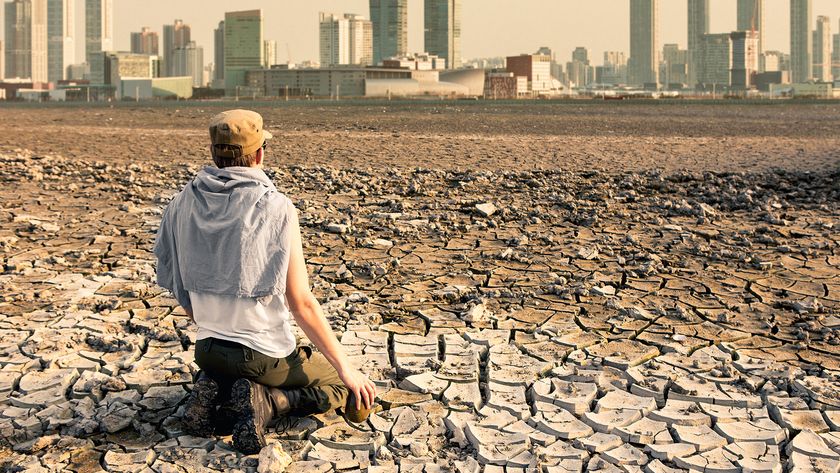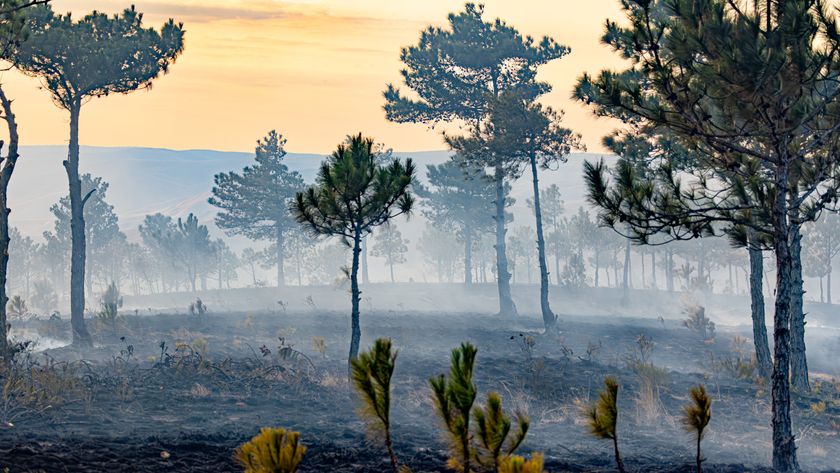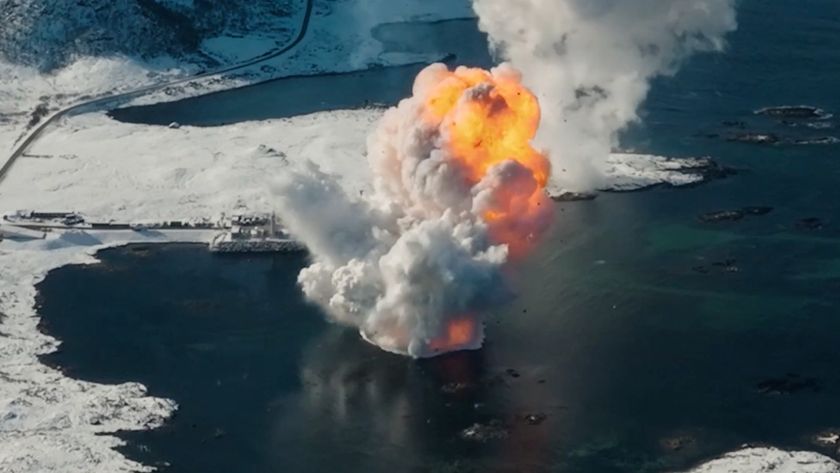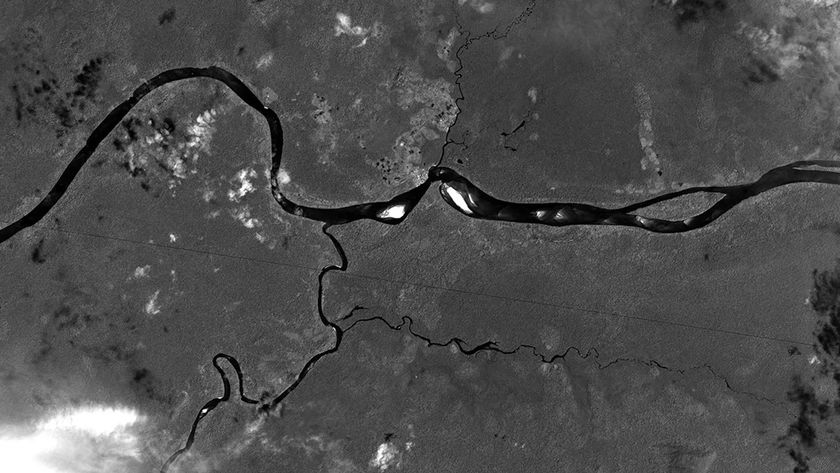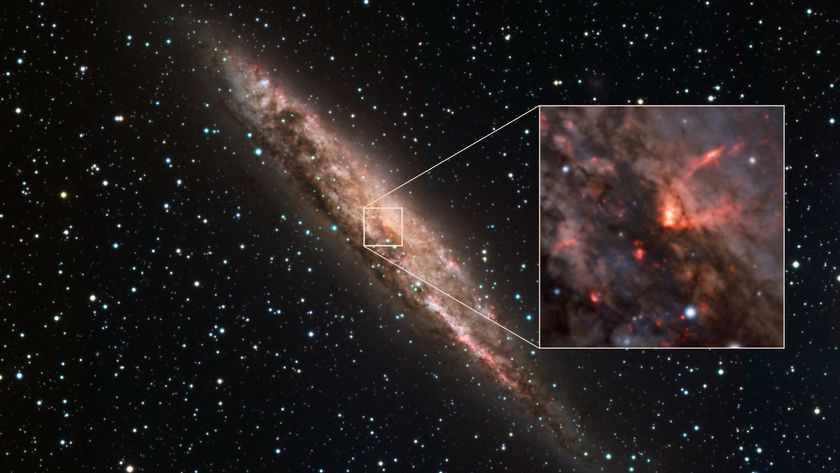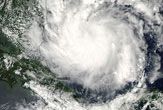
The increase in the intensity and duration of Atlantic hurricanes in recent decades is due to temperature increases in the atmosphere caused by global warming, and not by natural variations in ocean temperature, according to a new study.
Recent studies have linked rising sea surface temperatures, or SSTs, in the Atlantic Ocean to climate change caused by human activities. Warmer SST's means the ocean is capable of storing more energy--energy that is converted into wind power during tropical storms.
However, other scientists blame a decades-long natural variation in ocean temperature, called the Atlantic Multidecadal Oscillation, or AMO, for the rising SST trend.
Both camps agree that rising SSTs are contributing to increasing hurricane strength, but until now, the connection between air temperature and SST was unclear. Do rising atmospheric temperatures cause sea surface temperatures to rise? Or is it the other way around?
Now, James Elsner, director of the Hurricane Center at Florida State University, says he has broken the deadlock using a statistical test that determines causality. His conclusion: that a warming atmosphere is raising sea surface temperatures, causing hurricanes to become stronger.
Elsner's finding is detailed in the current issue of the journal Geophysical Letters.
Sign up for the Live Science daily newsletter now
Get the world’s most fascinating discoveries delivered straight to your inbox.
X predicts Y, but not vice versa
Elsner looked at the connection between average global near-surface air temperatures and Atlantic SSTs and the effect of each on hurricane intensities over the past 50 years.
He found that the average air temperatures during the hurricane season months of July to November could predict sea surface temperatures but that the opposite was not true: SST could not be used to predict average air temperature.
Elsner says this supports recent studies linking rising SSTs to global warming.
"If natural variability of oceans were the driving force, you'd expect that you'd be able to predict the air temperatures from the sea surface temperatures, but you can't do that," he told LiveScience.
To conduct his study, Elsner used satellite data collected by the Intergovernmental Panel on Climate Change (IPCC) for air temperature information from National Oceanic and Atmospheric Administration (NOAA) for Atlantic SST records.
However, the reliability of such tropical cyclone databases was recently questioned by a group of scientists that included hurricane specialist Chris Landsea of the National Hurricane Center in Miami, Florida.
Questionable data?
Landsea cited changes in satellite technology in recent decades, differences in operational standards at tracking stations around the world and gaps in official records as reasons to question the use of cyclone databases for evaluating hurricane strengths over long periods of time.
Elsner says these problems do not apply to his study because he looked at year-to-year variations instead of trends over several years.
"The trend analysis is more susceptible to the changes in instrument records than is the type of regression analysis that I did," he said.
Elsner says his findings cannot be generalized to other oceans around the world and only applies to the Atlantic basin, and even then, only during the summer months.
"It could be that the ocean is actually forcing the atmosphere at other times of the year," Elsner said. "But during the hurricane season, it appears that it's going the other way--it's the atmosphere that's forcing the ocean."
- Hurricane Guide: Busy 2006 Forecast
- Hurricane Guide: 2006 Forecast Downgraded
- Warmer Seas Creating Stronger Hurricanes, Study Confirms
- Global Warming Weakens Trade Winds
- GALLERY: Hurricane Katrina Images
- GALLERY: Hurricanes from Above
